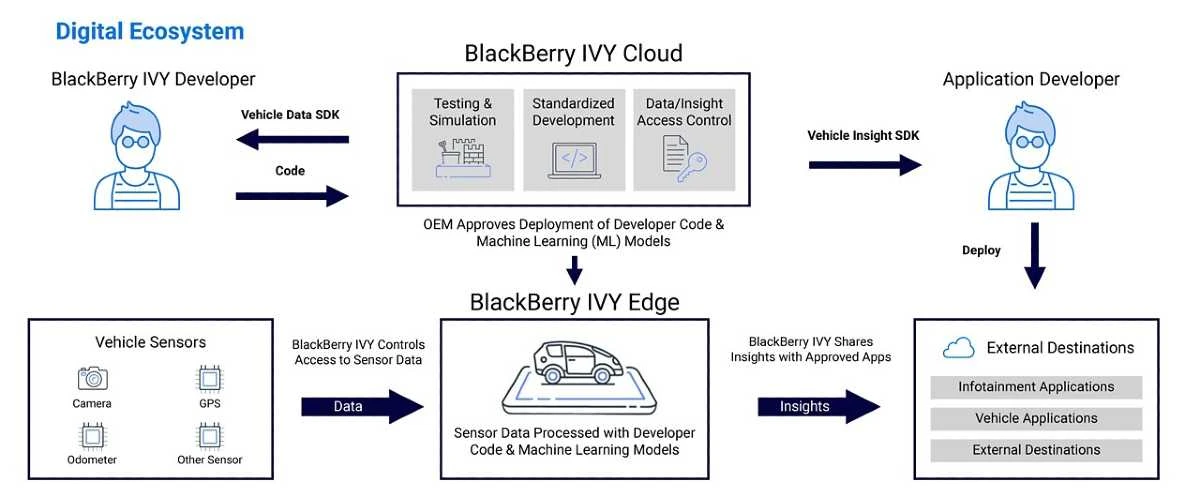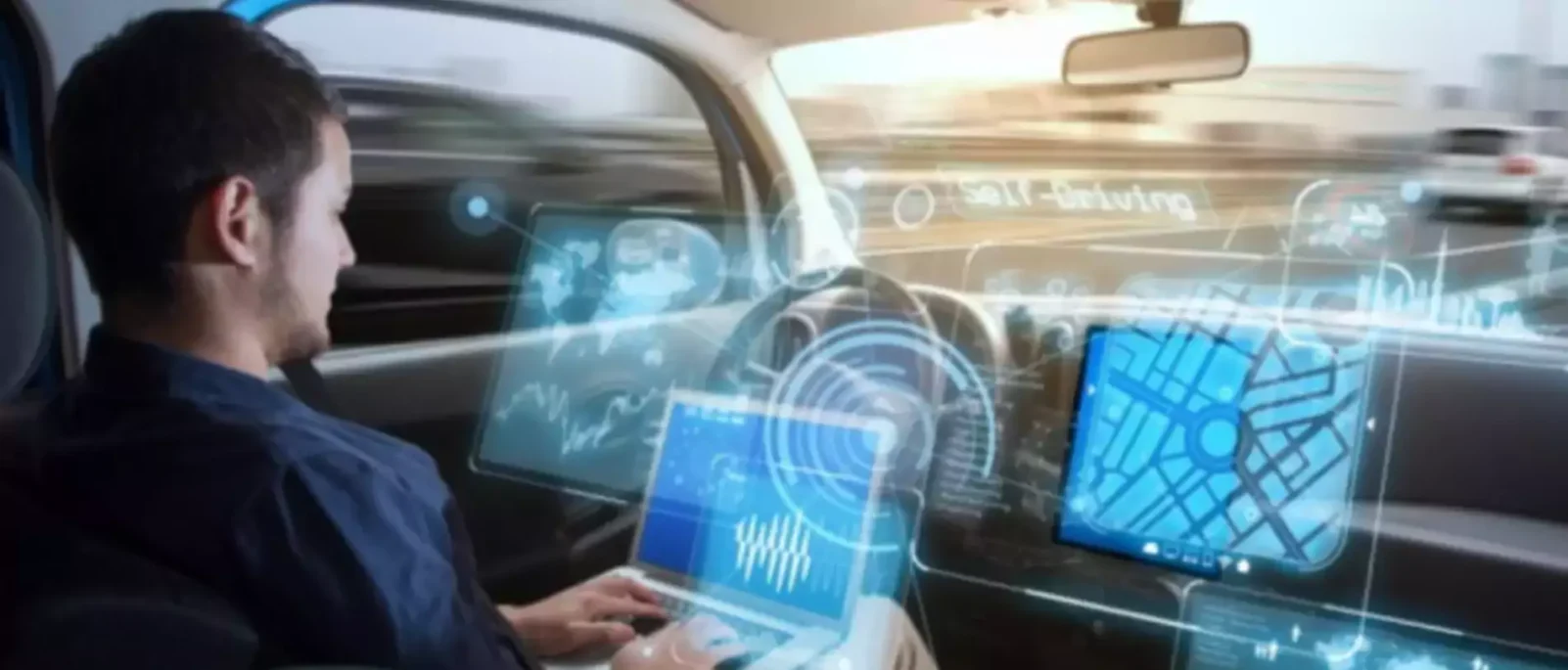BlackBerry and L-SPARK have announced the four winning companies that will make up the third cohort of their joint accelerator program, which aims to grow Canadian technology companies that are focused on connected vehicle technologies.
New this year, the accelerator has provided select companies with access to BlackBerry’s Intelligent Vehicle Data Platform – BlackBerry IVY, enabling them to deliver next-generation connected vehicle use cases leveraging in-vehicle data with a view to improving driver and passenger experiences.
“The four companies selected for this very special BlackBerry IVY focused accelerator program with L-SPARK represent the very best of the Canadian smart mobility ecosystem. Each brings with them a wealth of talent, innovative technology and a drive to deliver high-impact, data-driven services and solutions that will one day transform the in-car experience,” said Peter Virk, Vice President of IVY Product and Ecosystem, BlackBerry.
“We look forward to working with them in the weeks and months ahead and are confident that their offerings will resonate with OEMs as we continue to build out the breadth and depth of our BlackBerry IVY ecosystem.”
Deeplite, Montreal
Deeplite provides an AI inference optimization platform for the millions of developers struggling to deploy edge-AI to products in vehicles, smart cities, 5G IoT, and the things we use every day by making smaller, faster and more energy efficient AI.
Raven Connected, Ottawa
Raven Connected provides a comprehensive video telematics platform that incorporates an array of sensors, communication modules and direct connection to the vehicle’s onboard computer to capture images, video and other data elements.
These components are incorporated into ML and AI models to generate real-time insights into vehicle performance, driving behaviours, road conditions and pedestrian safety.
Sensor Cortek, Ottawa
Sensor Cortek uses deep neural networks to develop advanced embedded AI-based perception systems enabling reliable understanding of real-world environments.
The company creates intelligent software solutions with a focus on advanced driver-assistance and autonomous vehicles.
Wedge Networks, Calgary
Wedge Networks is a cybersecurity software vendor specializing in intelligent real-time threat prevention. With numerous patents, awards, and peer-reviewed machine learning publications, Wedge’s intelligent, constantly evolving and learning threat prevention platform protects millions of connected devices – including connected and autonomous vehicles and intelligent
Leo Lax, Executive Managing Director at L-SPARK commented:
“The BlackBerry L-SPARK Accelerator has not only propelled connected vehicle technology forward, but has also paved the way for collaboration and partnership between the participating companies and BlackBerry,”
“We are thrilled to be at the forefront of innovation in the connected vehicle technology space alongside the incredible team at BlackBerry for the third consecutive year.”

Announced in December 2020 as part of a multi-year, global agreement with Amazon Web Services (AWS), BlackBerry IVY is a scalable, cloud-connected software platform that will allow automakers to provide a consistent and secure way to read vehicle sensor data, normalize it, and create actionable insights from that data both locally in the vehicle and in the cloud. Automakers can use this information to create responsive in-vehicle services that enhance driver and passenger experiences.
BlackBerry IVY addresses a critical data access, collection, and management problem in the automotive industry. Modern cars and trucks are built with thousands of parts from many different suppliers, with each vehicle model comprising a unique set of proprietary hardware and software components.
These components, which include an increasing variety of vehicle sensors, produce data in unique and specialized formats. The highly specific skills required to interact with this data, as well as the challenges of accessing it from within contained vehicle subsystems, limit developers’ abilities to innovate quickly and bring new solutions to market.
BlackBerry IVY will solve for these challenges by applying machine learning to that data to generate predictive insights and inferences, making it possible for automakers to offer in-vehicle experiences that are highly personalized and able to take action based on those insights.
BlackBerry IVY will support multiple vehicle operating systems and multi-cloud deployments in order to ensure compatibility across vehicle models and brands. It will build upon BlackBerry QNX’s capabilities for surfacing and normalizing data from automobiles and AWS’s broad portfolio of services, including capabilities for IoT and machine learning.
BlackBerry IVY will run inside a vehicle’s embedded systems, but will be managed and configured remotely from the cloud. As a result, automakers will gain greater visibility into vehicle data, control over who can access it, and edge computing capabilities to optimize how quickly and efficiently the data is processed.
With BlackBerry IVY’s integrated capabilities, automakers will be able to deliver new features, functionality, and performance to customers over the lifetime of their cloud-connected vehicles, as well as unlock new revenue streams and business models built on vehicle data.
For instance, BlackBerry IVY could leverage vehicle data to recognize driver behavior and hazardous conditions such as icy roads or heavy traffic and then recommend that a driver enable relevant vehicle safety features such as traction control, lane-keeping assist, or adaptive cruise control.
IVY could then provide automakers with feedback on how and when those safety features are used, allowing them to make targeted investments to improve vehicle performance.
Additionally, drivers of electric vehicles could choose to share their car’s battery information with third-party charging networks to proactively reserve a charging connector and tailor charging time according to the driver’s current location and travel plans.
BlackBerry IVY could also provide insights to parents of teenage drivers who may choose to receive customized notifications based on insights from vehicle sensors when the number of passengers in the vehicle changes, when the driver appears to be texting, distracted, or not observing speed limits, or when the vehicle occupancy level rises above the parents’ desired safety threshold.
Similarly, parents of infants could receive a reminder to engage the child safety lock when the vehicle detects a child in the rear seat.
BlackBerry IVY will enable automakers to compress the timeline to build, deploy, and monetize new in-vehicle applications and connected services across multiple vehicle brands and models.
Instead of investing in one-off solutions that conform to the unique engineering of different vehicle models (as they do today), automakers using BlackBerry IVY will be able to leverage different types of data as common building blocks for new services that could work across a range of models.
Automakers will be able to use the platform’s application programming interfaces (APIs) to share data and outputs with their software development teams, giving them the ability to innovate, while also protecting customer privacy and security by controlling whom can access vehicle and app data and at what level of detail.
In addition, BlackBerry IVY will make it easier for automakers to collaborate with a wider pool of developers to accelerate creation of new offerings that deliver improved vehicle performance, reduced costs for maintenance and repairs, and added convenience.
For instance, by analyzing real-time performance data, automakers could recognize the first signs of potentially faulty parts, deploy code to identify affected vehicles, notify impacted drivers, and perform targeted recalls.
Automakers will be able to remotely deploy and update the software from the platform’s Cloud Console (a web interface for managing BlackBerry IVY) to continuously improve the functionality of the system.



